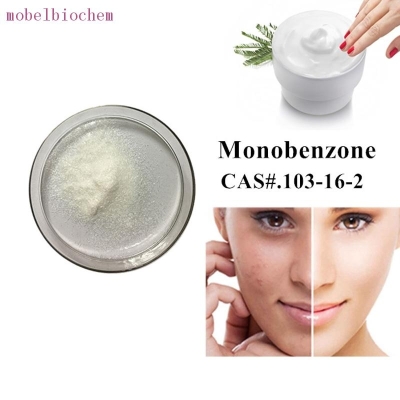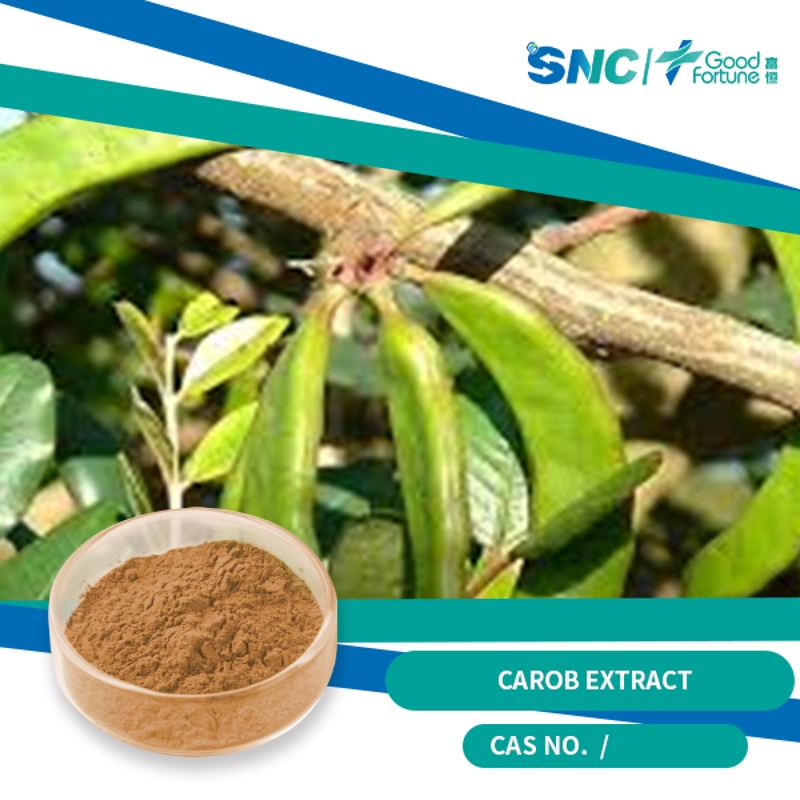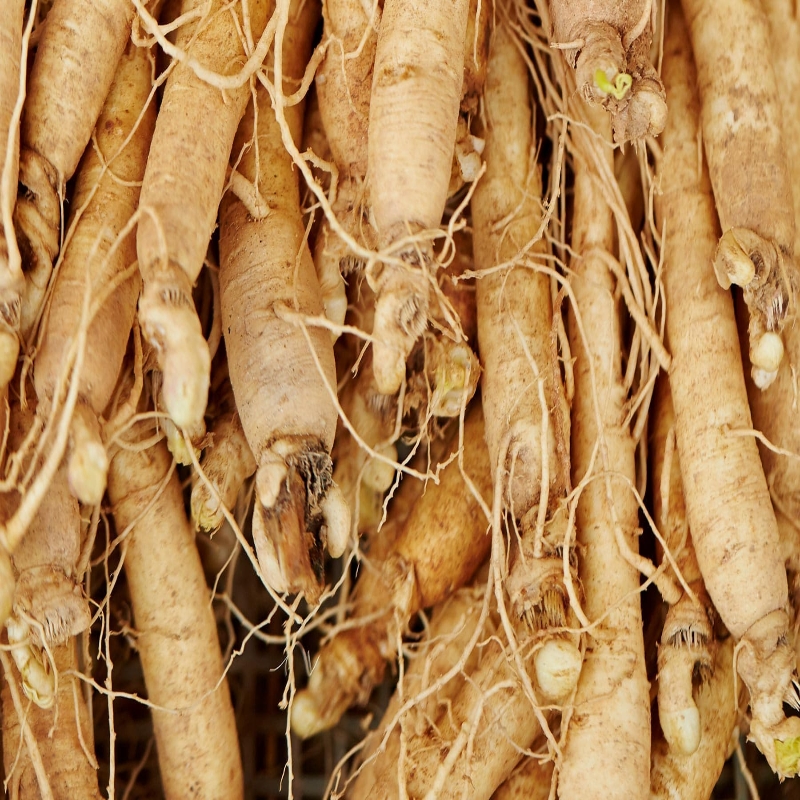Natural sweetener is stronger than aspartame
-
Last Update: 2012-02-01
-
Source: Internet
-
Author: User
Search more information of high quality chemicals, good prices and reliable suppliers, visit
www.echemi.com
It has become a new trend in the international industry to develop new sweet substances from natural sources to replace synthetic chemical sweeteners The annual growth rate of natural sweeteners represented by Stevia in the international market is as high as 21.3%, far higher than the sales growth rate of chemically synthesized sweeteners Stevia has become the leading natural sweetener It does not contain any heat and is very safe for human body Its sweetness is 200-300 times that of sucrose At present, the sales volume of Stevia in the international market has reached more than one billion dollars, and its sales momentum even overwhelms traditional chemical synthetic sweeteners such as saccharin sodium Before that, European medical circles had reported a large number of negative reports that long-term consumption of artificial sweeteners containing aspartame will increase the risk of Alzheimer's disease and other neurological diseases, as well as induce cardiovascular diseases Therefore, European and American consumers are now alienating from artificial sweeteners such as aspartame, acesulfame, cyclamate and saccharin sodium, and they are more willing to eat natural sweeteners Food with agent International beverage and food giants, including Coca Cola, Pepsi Cola and other large companies, now also use natural sweeteners such as Stevia as sweeteners to reduce the amount of aspartame or saccharin sodium After Stevia has been recognized all over the world and made great achievements in the international market, western manufacturers have launched a new all natural sweetener product, namely, kiwi fruit sweet protein (chemical name: thaumatin), a new sweetener from the mysterious fruit in the tropical jungle of West Africa At present, the product has been listed in many developed countries, including the United States, Japan, Europe, Israel and so on As early as a decade ago, thaumatin has been recognized as a "product safe for human body" (GRAS grade food), because its main component is protein According to the manufacturer, thaumatin's sweetness is 2000-3000 times that of sucrose It only needs a very small amount to achieve a high sweetness The only disadvantage is that the source is not extensive and it is difficult to expand the output In recent years, scientists in the United States have successfully used recombinant DNA to form a heterozygous tumor of thaumatin gene and cell DNA of high-yield plants such as tobacco, and then plant the transgenic plant in the field, from which the same sweet substance as Kiwi fruit sweet protein can be extracted Japanese scientists have transformed the "Aspergillus japonicus" into an engineering bacterium by recombinant DNA and other technical means, and then cultured the engineering bacterium in the fermentation tank, which can also extract the same sweetener as Kiwi fruit sweet protein In a word, the technical problem of mass production of new plant sweeteners has been overcome In the future, thaumatin like sweeteners are expected to become the backbone products in the international sweetener market Recently, Hubei Yuancheng science and Technology Development Co., Ltd has also produced kiwi fruit sweet protein products with bioengineering technology, and a small number of products have been exported Monatin, a new high sweetness natural sweetener similar to kiwi fruit sweet protein, is also an amino acid sweet substance extracted from the bark of a tropical plant from Africa Although it has not yet been developed into a commodity for marketing, it has been studied in the United States and many countries in Europe and has been proved to be a non-toxic and harmless food raw material, suitable as a sweetener to replace white sugar In addition to the new source of natural sweeteners, some western manufacturers are trying to develop composite natural sweeteners and have made some progress For example, a Chicago company recently launched a new compound sweetener product steviacane According to the introduction, the new sweetener product is made of white sugar and a small amount of steviacane Its sweetness is similar to white sugar, but its total heat can be reduced by 75% compared with the same amount of white sugar It is also feasible to extract new natural sweeteners from common crops Quaker, a food additive company in the United States, has extracted a new sweetener product from the hydrolyzed oats commonly grown in North America If it can be approved for marketing, a new variety will be added to the natural sweetener team in the future High end consumption concentrated in European and American markets According to the survey of BCC research in Europe, in 2010, the global total sales of non sucrose sweetener products in the international market amounted to 9.2 billion US dollars, and it is estimated that this market will reach 9.4 billion US dollars this year (taking into account the economic downturn in most European countries and the decline of consumption capacity and other comprehensive factors); in 2014, the world non sucrose sweetener market will break through 10 billion US dollars BCC research disclosed in its global sweetener market report that at present, aspartame accounts for 44%, sucralose 17%, stevia 14%, acesulfame 10%, cyclamate 9% and other sweeteners only account for 6% of the international sweetener market It is clear that Stevia has become the third best-selling sweetener product in the international sweetener market after sucralose If divided by country market, the United States is the largest non sucrose sweetener market in the world, with the total sales of sweetener market accounting for 58% of the global sweetener market; Europe is the second, accounting for 22%; Asia Pacific region is the third, accounting for 19%; other countries and regions in the world account for the rest 1% The rapid development of the world natural sweetener market has brought the most obvious benefits to China, because of the huge demand for Stevia in the European and American markets, which has promoted the upsurge of large-scale planting of Stevia by Chinese farmers At present, the planting area of Stevia in China is about 250 thousand mu per year, the annual harvest of Stevia in China has reached about 100 thousand tons, and the total capacity of Stevia in China has exceeded 6000 tons However, due to the domestic market of Stevia has not been opened, 80%~90% of Stevia can only be exported to overseas markets To be sure, stevia processing industry has become a new type of industrial chain in China According to incomplete statistics, there are hundreds of companies engaged in Stevia trade in China China's export of Stevia accounts for about 60.5% of the international market According to the analysis of BCC research, in terms of sales volume, saccharin sodium, acesulfame and cyclamate still account for the majority of sweetener market in Asian, African and Latin American countries including China, while in developed countries, high sweeteners such as aspartame and sucralose account for the majority of sweetener market Obviously, the use rate of natural sweeteners with relatively high prices is increasing in developed countries In developed countries in Europe and America, new and old natural sweeteners such as stevia, glycyrrhizin and siraitin have accounted for 10% of the total sweeteners, while developing countries rarely use natural sweeteners Nowadays, consumers all over the world pay more and more attention to the safety of products and "green food" It will become a general trend to develop natural sweeteners from new plant sources, and its market growth space is huge.
This article is an English version of an article which is originally in the Chinese language on echemi.com and is provided for information purposes only.
This website makes no representation or warranty of any kind, either expressed or implied, as to the accuracy, completeness ownership or reliability of
the article or any translations thereof. If you have any concerns or complaints relating to the article, please send an email, providing a detailed
description of the concern or complaint, to
service@echemi.com. A staff member will contact you within 5 working days. Once verified, infringing content
will be removed immediately.







